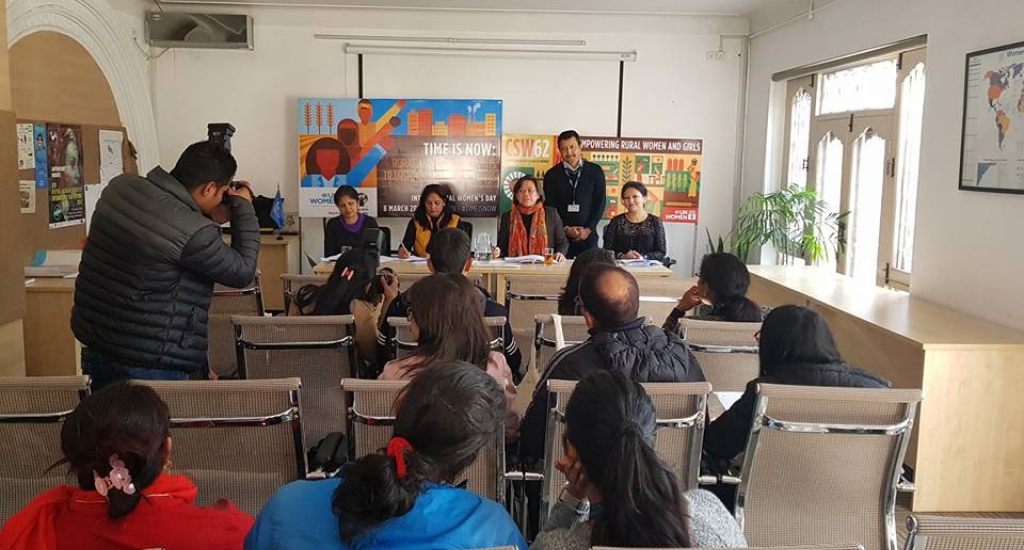UN Women is mandated to be a lead driver and lead voice advocating for gender equality and women’s empowerment globally. It is a dynamic and strong champion for women and girls, providing them with a powerful voice at the global, regional and local levels.
UN Women works with UN partners at the regional and country levels to ensure that demand for technical expertise from national partners and regional organizations are met. At the country level, it provides technical and financial support to national partners, helping them to develop the ability to address their priority challenges. UN Women supports UN Country Teams to strengthen and coordinate action on gender equality. It will enhance, not replace, efforts by other parts of the UN system, which will continue to have responsibility to work for gender equality and women’s empowerment in their areas of expertise.
The key roles of UN Women are:
- To support inter-governmental bodies such as the Commission on the Status of Women, in their formulation of policies, global standards and norms;
- To help Member States to implement these standards, standing ready to provide suitable technical and financial support to those countries that request it and to forge effective partnerships with civil society and;
- To enable Member States to hold the UN system accountable for its own commitments on gender equality, including regular monitoring of system-wide progress.
Priorities Area in Nepal:
UN Women Nepal Country Office was established in April 2012, and received full Delegation of Authority in July 2013.
Grounded in the vision of equality enshrined in the UN Charter, UN Women will, among other issues, work for the: elimination of discrimination against women and girls; empowerment of women; achievement of equality between women and men as partners and beneficiaries of development, human rights, humanitarian action and peace and security. UN Women will provide substantive support to UN bodies on all aspects of gender equality issues. Guided by CEDAW, BPfA and MDGs, UN Women in Nepal, will focus on the following key areas:
- Violence against women
- Peace and security
- Leadership and Participation
- Economic Empowerment
- National planning and budget
Additional Information:
UN Women has merged and will build on the important work of the following four previously distinct parts of the UN system, which focus exclusively on gender equality and women’s empowerment:
- Division for the Advancement of Women (DAW, established in 1946)
- International Research and Training Institute for the Advancement of Women (INSTRAW, established in 1976)
- Office of the Special Adviser on Gender Issues and Advancement of Women (OSAGI, established in 1997)
- United Nations Development Fund for Women (UNIFEM, established in 1976).

